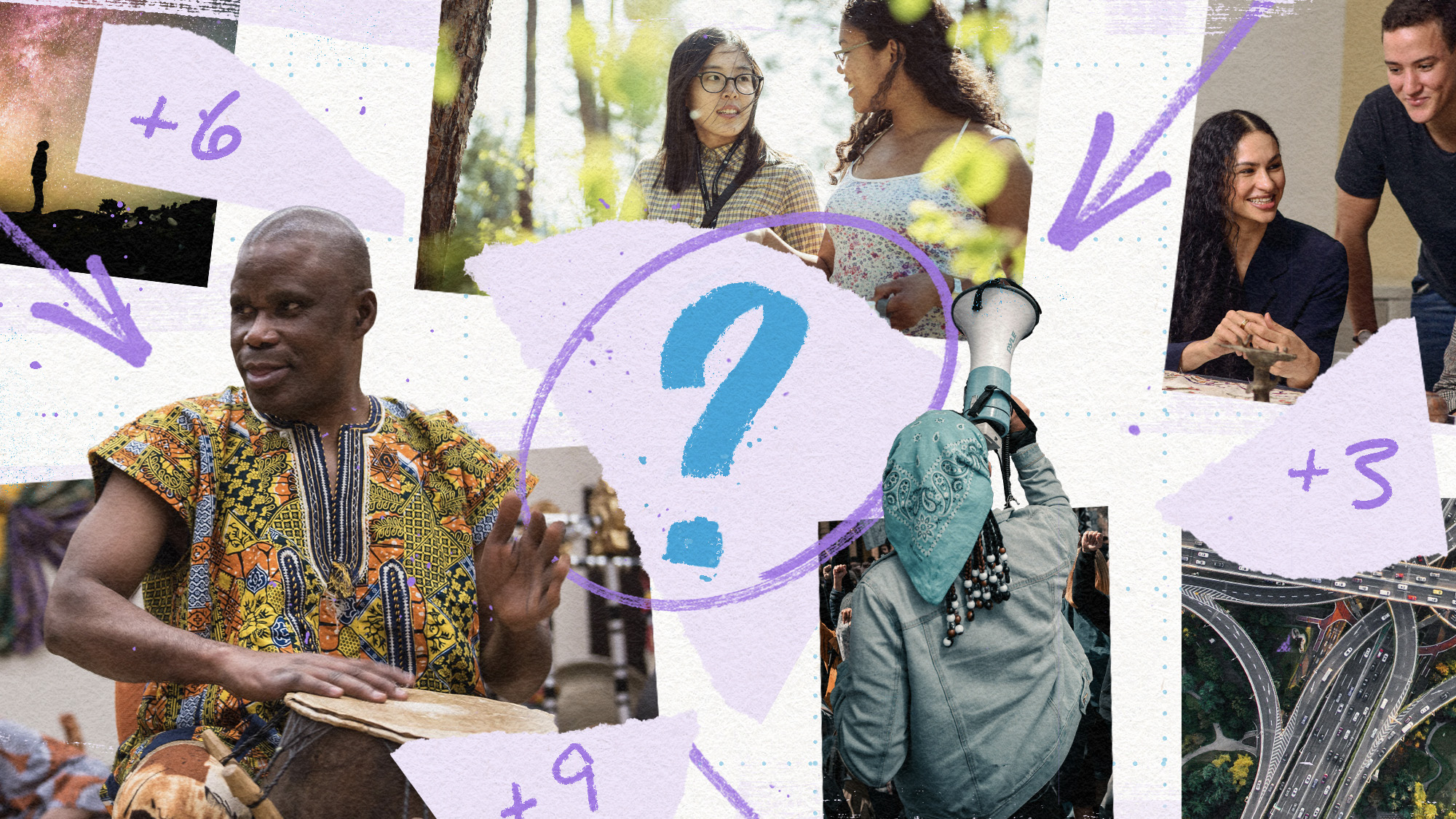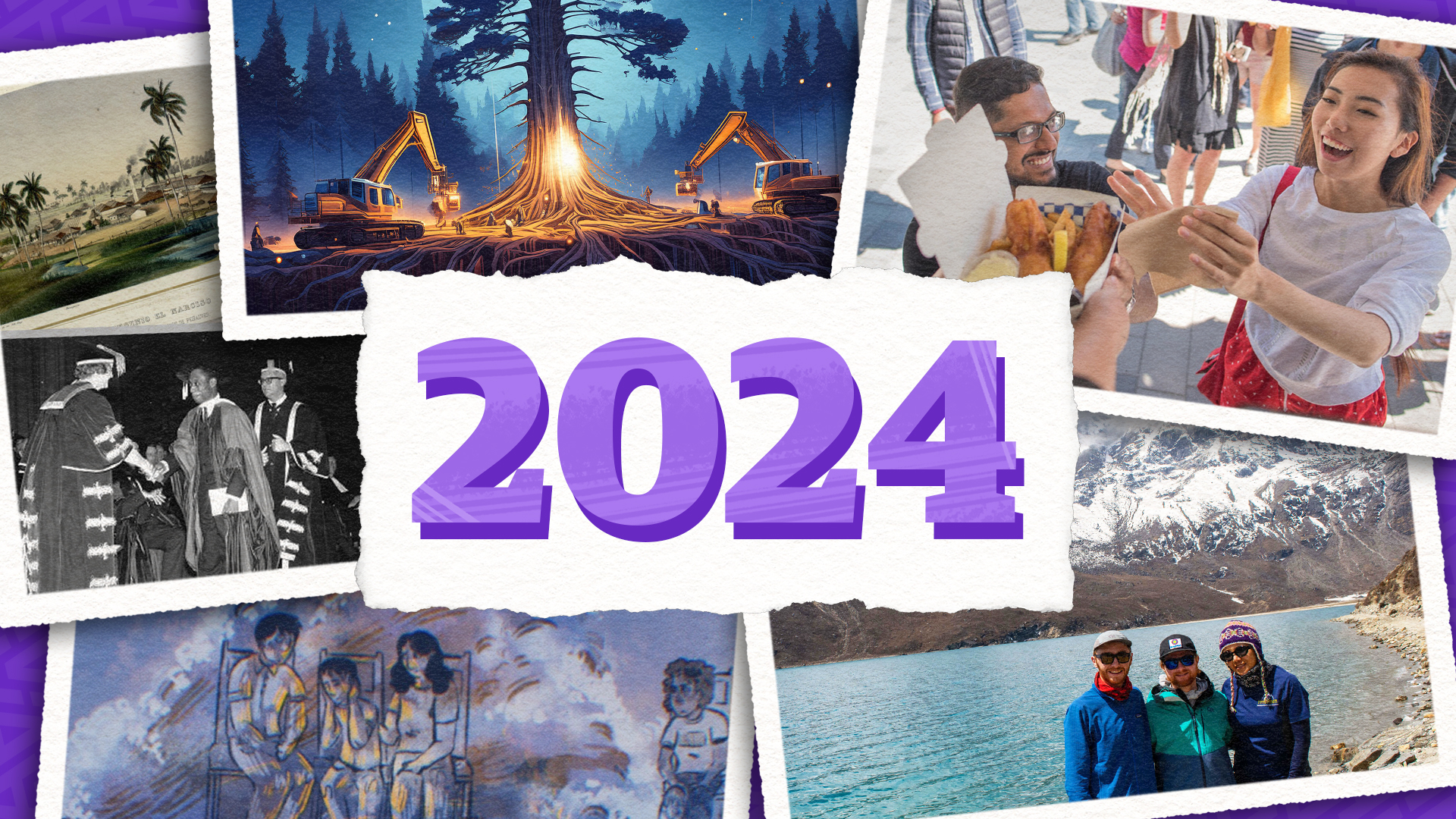

The Ways of Knowing breadth requirement empowers students to design their own personalized program of study and encourages interdisciplinary learning. But what does that mean? The requirement aims to spark curiosity and invites students to expand their knowledge and perspective through experiencing various areas of study.
As part of the new Bachelor of Arts Degree Requirements starting in 2024/25, historian Dr. Tara Mayer and political scientist Dr. Andrew Owen share the process behind its development and why the new requirement and its components are beneficial for students.
Why was the Ways of Knowing breadth requirement created?
Develop interdisciplinary approaches to learning:
With universities offering multiple areas of study, there are certain underlying assumptions about how the world works and how to study it. So how can students expand their perspective? “Many scholars across disciplines study the same topic but do so using different frameworks and perspectives. Being able to think across them can be really valuable for students to better understand the work they’re doing in their major, but also more generally things out there in the world,” says Dr. Owen.
“It is about questioning not just the content that students will encounter in individual courses. It’s getting students to ask where they know from. Ways of Knowing is questioning the methods and foundational assumptions within each discipline.”
The Western tradition of higher education has come into being through a long historical process. The Ways of Knowing breadth requirement is about recognizing this trajectory and mapping some of its core features. “It’s also about the expansion and recognition of other modes and methodologies of knowledge production,” says Dr. Mayer. “The plural ‘ways’ as opposed to ‘way’ of knowing is key for me. Certainly, that sense of breadth, diversity, and non-universality has been at the core of this project.”
Expand the opportunity for personalized education:
While the five categories of the Ways of Knowing breadth requirement are neatly organized in buckets, the road to its development was a difficult process that entailed challenging conversations. “This was a heated intellectual space, where faculty were very vocal about how they understood their disciplines. At one point in our consultations, every unit Head had the opportunity to contribute their own description of what their unit does, why, and how. We had to parse the difference between how professional researchers see the nuance of what they do versus what filters down and comes across for an undergraduate sitting in the classroom; finding connections and associations between methodology and practice,” says Dr. Mayer. “The requirement also recognizes that students are not blank slates. They bring their own sense of meaning to the material. They draw on their own experiences and forge their own connections, even within realms that are ostensibly new to them.”
What’s the benefit of this requirement?
Take a chance and discover new interests:
Ways of Knowing is about the possibility of encounters with topics and ideas beyond what is familiar. Putting it concretely, Dr. Owen encourages students to “try out stuff that’s different than what you usually do. Doing so might help you identify a topic that really interests you even if it isn’t related to your career or other goals. It can range from a spark of intrigue to a more concrete path of a potential minor. And an ability to make links between a major and minor that don’t traditionally go together can really help you understand each and might even help you stand out in a job interview.”
“Learning a thin wedge of something different might open you to a whole new area of interest that might be career relevant or might just be relevant for your enjoyment of life.”
Experience the diversity of culture across disciplines:
Dr. Mayer emphasizes that different disciplines are not just different branches of knowledge that address different questions, ideas, or themes. “Disciplines carry within them certain internal norms, values, cultures, and practices. There are encoded values and expectations in how we speak up, share ideas, offer feedback or critique, and produce work for assessment. Experiencing different disciplinary cultures is a tremendous part of what students are gaining here.”


Dr. Tara Mayer is an Associate Professor of Teaching in the Institute for Gender, Race, Sexuality and Social Justice (GRSJ). She was born and raised on Kānaka Maoli land in Maui, Hawai’i and currently lives, learns, and works on the lands of the traditional territories of the xʷməθkʷəy̓əm (Musqueam), Sḵwx̱wú7mesh (Squamish), and səlilwətaɬ (Tsleil-Waututh) Nations.


Dr. Andrew Owen is an Associate Professor of Teaching in the Department of Political Science. His educational journey includes learning at schools situated on the territories of the Mississaugas of the Anishinaabe, the Haudenosaunee Confederacy, the Wendat, and Lenni-Lenape People. He now gratefully lives and works on the traditional, ancestral, and unceded territories of the xwməθkwəy̓əm (Musqueam).


